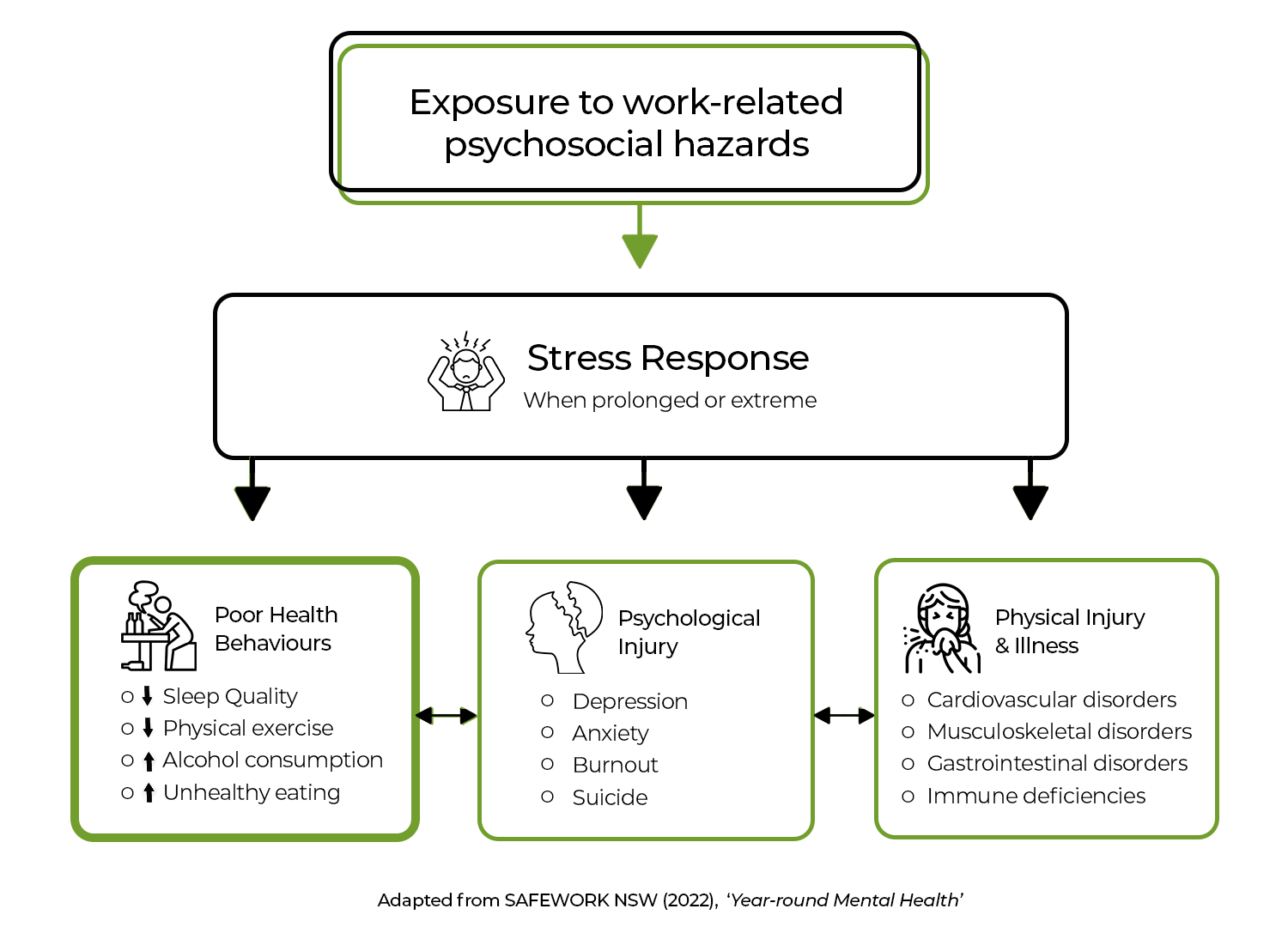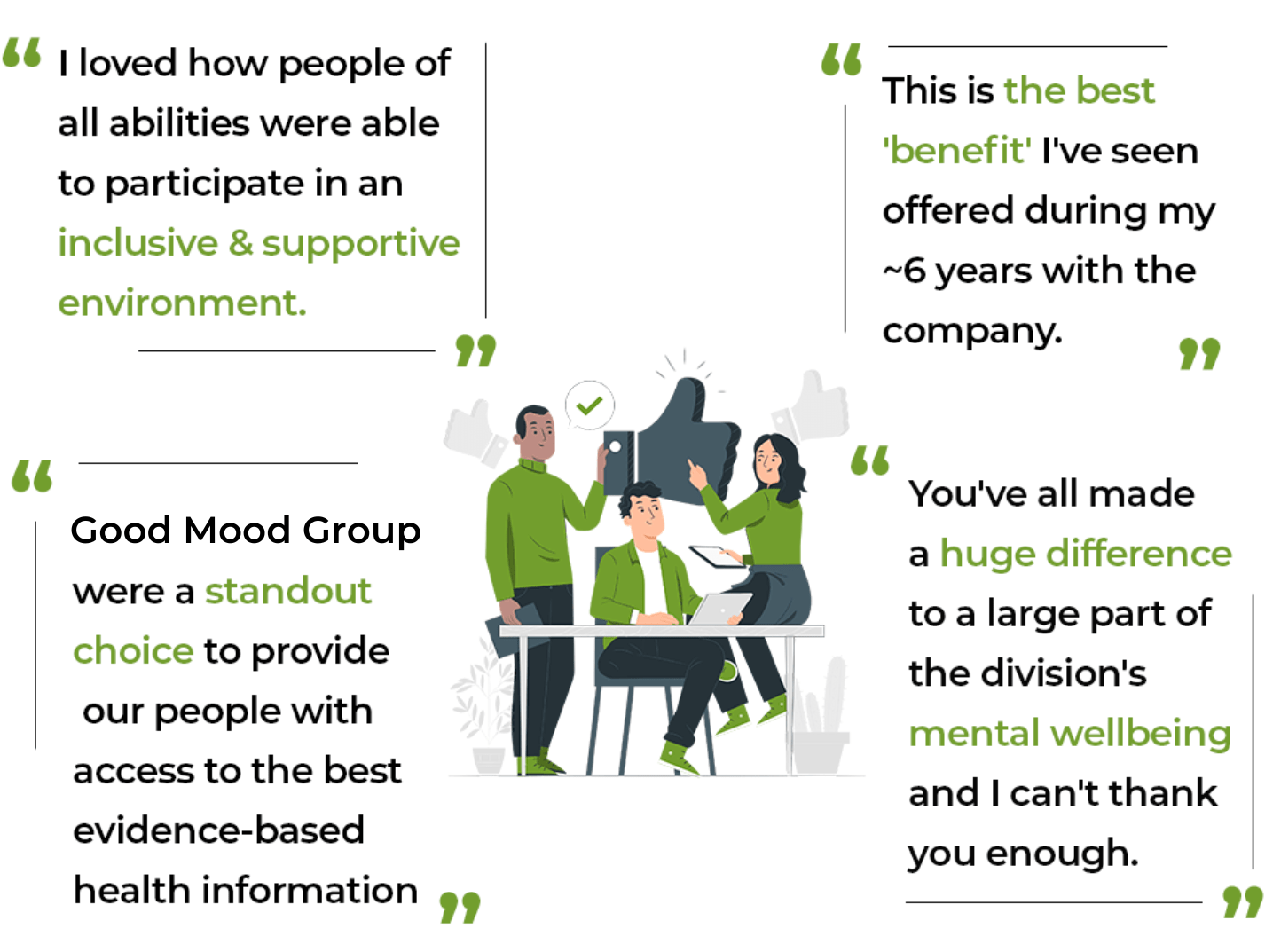The workplace, including the work environment, systems and processes, and people who work within it, can help or hinder an individual’s health and wellbeing.
Exposure of employees to psychosocial risks at work, such as high job demands, low job control, along with organizational cultures that value productivity ahead of psychological health can contribute to:
- poor diet, sleep, and lack of exercise
- increased depression, anxiety, and burnout
- physical injury and illness.
It’s in every employer’s best interest to invest in a wellbeing program that educates and engages their workforce in the latest, evidence-based research and strategies they can use to counter these risks.








